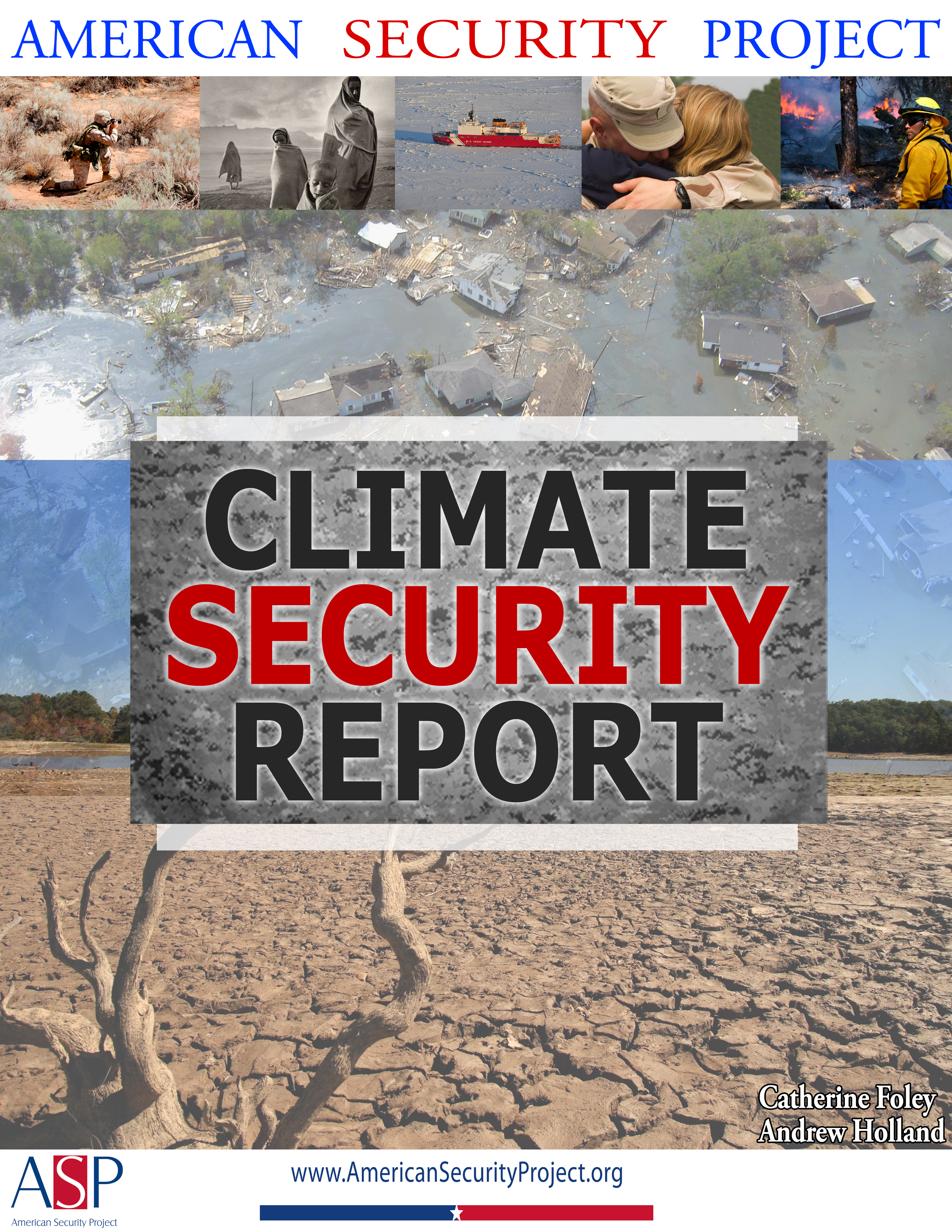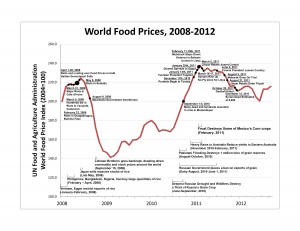
Climate Change, The Arab Spring and Food Prices
Climate change is inextricably linked to national security.
The effects of climate change – drought, severe storms, flooding, reduced agricultural activity – will present serious problems to countries around the world. In particular, climate change will undermine stability in certain “hot spots,” exacerbating underlying tensions that already exist.
ASP’s Policy Brief, “The Arab Spring and World Food Prices,” details this link.
The Arab Spring represents merely one example of what climate change may look like in the future. Climate change can undermine states with existing tensions and fragile social contracts.
Andrew Holland explains the connection between rising world food prices due to climate change, and the spark that set off The Arab Spring.
You can read the whole of the Climate Security Report here.
The Arab Spring and World Food Prices








[…] Climate Change, The Arab Spring and Food Prices […]
[…] prices as a prime underlying cause of unrest around the world. I have cited them in our paper on climate change and the Arab Spring. Great Plains Ethanol in Tennessee, from the author’s trip in […]
[…] new. In November 2012, liberal thinkers at the American Security Project released a report titled “The Arab Spring and World Food Prices.” In the report Andrew Holland […]
[…] new. In November 2012, liberal thinkers at the American Security Project released a report titled “The Arab Spring and World Food Prices.” In the report Andrew Holland […]
[…] Report, which emphasizes both the global and the international range of the threat. Our reports on Climate Change, The Arab Spring and Food Prices, Military Basing and Climate Change, and Offshore Oil Drilling in the Arctic offer analysis of […]
[…] Changes in the FAO World Food Price Index and major instability events globally from 2008-2012 (courtesy of American Security Project). […]
[…] Sustained shifts in weather patterns have already been linked to global instability, as noted in multiple articles that explore the connection between drought-driven increases in food prices and the unrest […]
[…] Sustained shifts in weather patterns have already been linked to global instability, as noted in multiple articles that explore the connection between drought-driven increases in food prices and the unrest […]
[…] Climate Change, The Arab Spring and Food Prices, November 2012 […]
[…] line between food prices and the likelihood of urban riots (for more on this, see my paper, “Climate Change, The Arab Spring and Food Prices”). The Gulf Monarchies took careful note of the link between food prices and realized they were […]
[…] the events of the Arab Spring. More specifically, the climate change related 2010 Russian Wildfires contributed to a 40% increase in world food prices which undoubtedly increased the likelihood of protests in the Arab Spring […]
[…] Gen. Cheney spoke about how in 2010 Russian wildfires decimated wheat crops, which led to a spike in food prices around the world. Higher food prices contributed to the underlying tension that fueled the fire of the Arab Spring. […]
[…] with meager crop yields and food prices soared, according an American Security Project report, “Climate Change, The Arab Spring and Food Prices.” Farmers were forced to abandon their farms and move into the dense cities. An estimated 600,000 […]
[…] by hotter temperatures, wildfires, and drought in wheat-producing Russia, China, and elsewhere) helped fuel the Arab Spring in […]
[…] Climate Change, The Arab Spring and Food Prices […]
[…] highlighted the previously overlooked role of droughts, food crises and economic problems caused by climate change in dramatically undermining the capacity of the region’s largely authoritarian states to maintain […]
[…] the previously overlooked role of droughts, food crises and economic problems caused by climate change [5] in dramatically undermining the capacity of the region’s largely authoritarian states to […]
[…] the previously overlooked role of droughts, food crises and economic problems caused by climate change in dramatically undermining the capacity of the region’s largely authoritarian states to […]